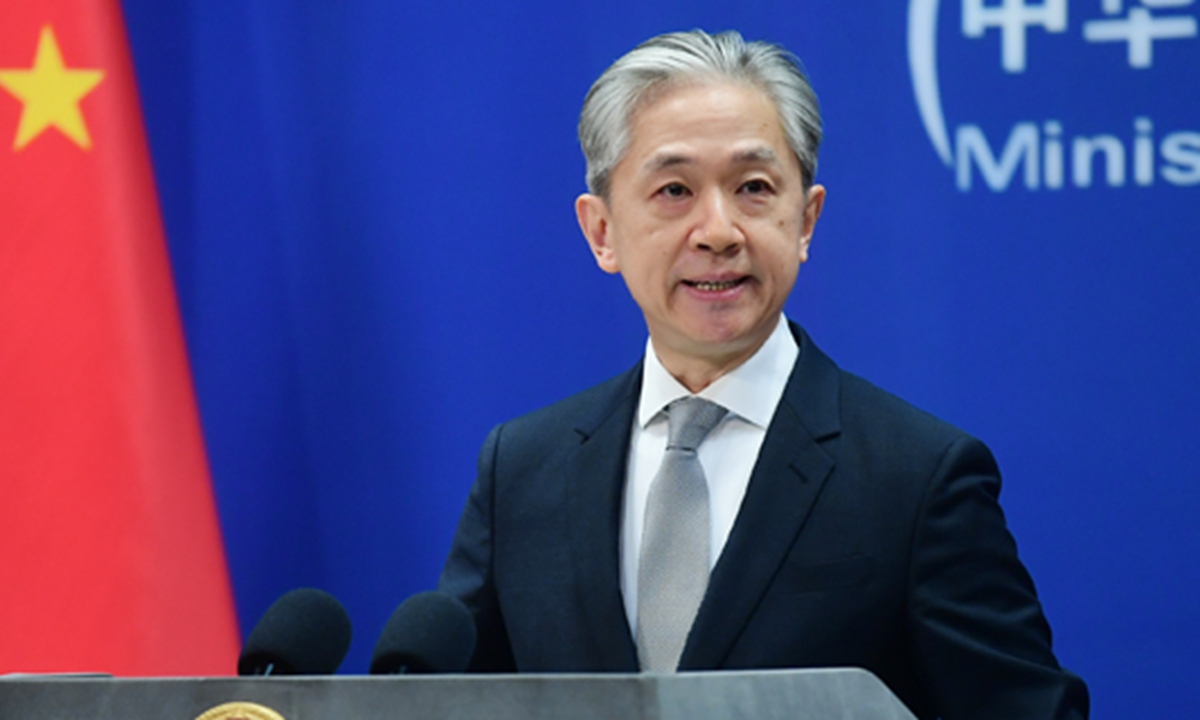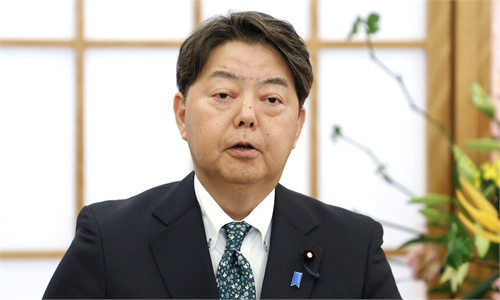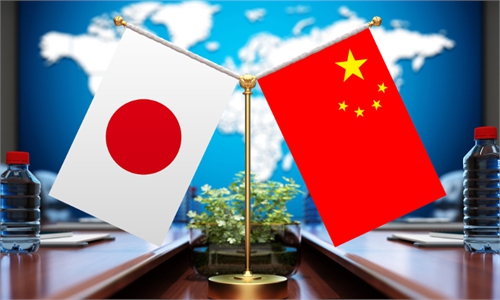Japan urged to stop following cliché of smears, provoking camp confrontation after diplomatic report calls China 'biggest strategic challenge'

Chinese Foreign Ministry spokesperson Wang Wenbin Photo: mfa.gov.cn
China expressed its firm opposition to Japan's practices in following its cliché of smears and accusations against China, playing up the so-called China threat and unreasonably interfering in China's internal affairs, urging Japan to correct its wrong actions and stop provoking and creating camp confrontation, in response to the latest Japanese diplomatic bluebook, which describes China as the "biggest strategic challenge."
Wang Wenbin, spokesperson of the Chinese Foreign Ministry, made the remarks at a regular press briefing on Tuesday, urging Japan to earnestly abide by the post-war international order and basic norms governing international relations, fulfill its obligations under international law, and translate its words on building constructive and stable relations with China into concrete actions.
Wang's comment came after the Japanese Foreign Ministry on Tuesday presented its annual Diplomatic Bluebook to a Cabinet meeting.
According to the Japanese media outlet NHK, the 2023 diplomatic report calls China-Japan ties "an important bilateral relationship." But citing China's external attitudes and military moves, it also describes the country as posing the "biggest strategic challenge" in terms of "reinforcing the international order based on the rule of law," NHK claimed. The report notes that Japan should cooperate with allies and like-minded nations when dealing with China
From issuing the defense documents to the latest Japanese diplomatic report, Japan is undergoing a major shift from its defensive policy since the end of World War II to a more aggressive posture, especially in countering China, Da Zhigang, director of the Institute of Northeast Asian Studies at the Heilongjiang Provincial Academy of Social Sciences, told the Global Times.
The wording "greatest strategic challenge" is the most confrontational expression of Japan's position toward China since the normalization of bilateral ties, Da noted.
The term calling China the "biggest strategic challenge" this year is stronger than the phrase "strong security concern" in last year's diplomatic bluebook, which exposed Tokyo's assertiveness with the growing influence of right-leaning conservative politicians, observers pointed out.
China was also listed as "an unprecedented strategic challenge" previously in the Japanese government's passage of three key national security documents - the National Security Strategy, the National Defense Program Guidelines and the Medium-Term Defense Program.
According to the NHK, the Japanese bluebook notes that Chinese and Russian joint military activities near Japan were at a more frequent pace than before.
Citing the so-called concern hyped in the Japanese diplomatic report over China-Russia joint military cooperation, the expert noted that Japan, through playing up the "China threat" and other external threats, is trying to justify its ongoing militarization.
In response, Wang Wenbin reiterated on Tuesday that China-Russia military cooperation is not targeted at any third party and is in full compliance with international law and practice. It poses no threat to any country and is not for others to make irresponsible remarks.
"We urge Japan to correct its wrong practice of playing up regional tensions," Wang stressed.
Japan has recently made a series of moves that risk regional peace and stability.
After concluding his China visit, Japan's Foreign Minister Yoshimasa Hayashi last week said he welcomed the increased involvement of NATO member states in the Indo-Pacific region, and pledged to boost Japan's cooperation with the trans-Atlantic alliance to uphold and strengthen "a free and open international order and the rule of law," in a speech at an extended session of the two-day NATO foreign ministerial meeting in Brussels.
According to Da, Japan has not been vague in showing its ambitions. The country is seeking an all-round expansion of its influence in Southeast Asia and South Asia, and the situations in regions including the East China Sea and South China Sea, using a combination of measures including the building up of its own military strength, coordinating with the US' Indo-Pacific strategy, and bringing in extraterritorial forces.
As Japan is clearly pushing the regional situation closer to the edge of danger, following the US strategy closely, observers warned against the country becoming a pawn of the US or even the Ukraine of East Asia.



